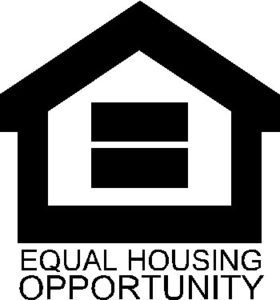Fair Housing
The Fair Housing Act
It is illegal to discriminate in the sale or rental of housing, including against individuals seeking a mortgage or housing assistance, or in other housing-related activities. The Fair Housing Act prohibits this discrimination because of race, color, national origin, religion, sex, familial status, and disability. A variety of other federal civil rights laws, including Title VI of the Civil Rights Act, Section 504 of the Rehabilitation Act, and the Americans with Disabilities Act, prohibit discrimination in housing and community development programs and activities, particularly those that are assisted with HUD funding. These civil rights laws include obligations such as taking reasonable steps to ensure meaningful access to their programs and activities for persons with limited English proficiency (LEP) and taking appropriate steps to ensure effective communication with individuals with disabilities through the provision of appropriate auxiliary aids and services. Various federal fair housing and civil rights laws require HUD and its program participants to affirmatively further the purposes of the Fair Housing Act.
MHC Commitment
MHC is committed to providing affordable housing opportunities to citizens without regard to race, color, national origin, religion, sex, familial status, or disability by affirmatively Furthering Fair Housing.
Affirmatively Furthering Fair Housing (AFFH)
Affirmatively Furthering Fair Housing (AFFH) is a legal requirement that federal agencies and federal grantees further the purposes of the Fair Housing Act. This obligation to affirmatively further fair housing has been in the Fair Housing Act since 1968 (for further information see Title VIII of the Civil Rights Act of 1968, 42 U.S.C. 3608 and Executive Order 12892).
Specifically, affirmatively furthering fair housing means taking meaningful actions that, taken together, address significant disparities in housing needs and in access to opportunity, replacing segregated living patterns with truly integrated and balanced living patterns, transforming racially and ethnically concentrated areas of poverty into areas of opportunity, and fostering and maintaining compliance with civil rights and fair housing laws. The duty to affirmatively further fair housing extends to all of a program participant's activities and programs relating to housing and urban development."
It is the policy of Mississippi Home Corporation to affirmatively further fair housing in all its programs so that individuals have equal access to housing programs, regardless of race, color, creed, religion, national origin, sex, marital status, status with regard to disability, familial status, gender identity or sexual orientation. MHC’s fair housing policy incorporates the requirements of the Fair Housing Act, Title VIII of the Civil Rights Act of 1968, as amended by the Fair Housing Amendment Act of 1988.
State of Mississippi Fair Housing Planning
The Analysis of Impediments to Fair Housing (AI) for the 2020-2024 Consolidated Plan Period is in the process of completion as a collaborated effort with the Mississippi Development Authority, Entitlements and Public Housing Authorities as part of the consolidated planning process for housing and community development (Consolidated Plan). Annual updates and a summary of actions the state has taken are included in the Consolidated Annual Performance and Evaluation Report (CAPER).
2018 Mississippi Analysis of Impediments to Fair Housing Choice (AI)
Violence Against Women Act
The Violence Against Women Act Reauthorization Act of 2013, signed into law in March of 2013, expanded housing protections to programs beyond the US Department of Housing and Urban Development’s (HUD) public housing program and HUD’s tenant-based and project-based Section 8 programs that were covered by the Reauthorization of VAWA in 2005. Additionally, the 2013 law provides enhanced protections and options for victims of domestic violence, dating violence, sexual assault, and stalking. HUD issued VAWA regulations in November 2016 that affect housing programs such as HOME, National Housing Trust Fund, Section 8, Section 811 PRA, and Section 236.
Forms and Notification Requirements
HUD has required certain forms and notifications for applicants and tenants to comply with the VAWA final rule and has posted these and additional resources on its VAWA Web Page. MHC’s VAWA Policy & Procedure’s Guide assists owners and agents with implementing and complying with the VAWA Final Rule and regulations.
HUD VAWA Forms:
HUD-5380 Notice of Occupancy Rights Under the Violence Against Women Act
HUD-5381 Model Emergency Transfer Plan for Victims of Domestic Violence, Dating Violence, Sexual Assault, or Stalking
HUD-5382 Certification of Domestic Violence, Dating Violence, Sexual Assault, or Stalking, and Alternate Documentation
HUD-5383 Emergency Transfer Request for Certain Victims of Domestic Violence, Dating Violence, Sexual Assault, or Stalking
HUD-91067 Section 8 VAWA Lease Addendum
VAWA Resources For Multifamily Assisted Housing
2019 VAWA Policy & Procedure’s Guide
Emergency Transfer Plan (ETP)
Emergency Transfer Plans are a requirement under the VAWA Final Rule. Additional details can be found in the VAWA Final Rule and MHC’s policy and procedures guide.

Contacts
HUD's Office of Fair Housing and Equal Opportunity
toll-free: 800.225.5342
TDD: 800.877.8339
Email: answers@hud.gov
Local HUD’s Office of Fair Housing and Equal Opportunity
Ashley Drakes Lowe, Equal Opportunity Specialist
HUD - FHEO
100 West Capitol Street, Suite 910
Jackson, MS 39269
Office: 601-608-1777
Email: a_drakes@hotmail.com
US Department of Housing and Urban Development - Jackson Field Office
Marilyn Moore-Lemons
Kentucky/Mississippi/Tennessee, Programs and Compliance Director
Region IV, Office of Fair Housing and Equal Opportunity
McCoy Federal Building
100 West Capitol Street, Suite 910
Jackson, Mississippi 39269-1069
Office, 601-608-1804
Email: Marilyn.moorelemons@hud.gov
Mississippi Home Corporation
TTY HELP LINE: 601-718-4688
735 Riverside Drive
Jackson, MS 39202
601-718-4642
All new fair housing complaint submissions can be sent to complaintsoffice04@hud.gov, or follow this link to fill out a fair housing complaint form online.
